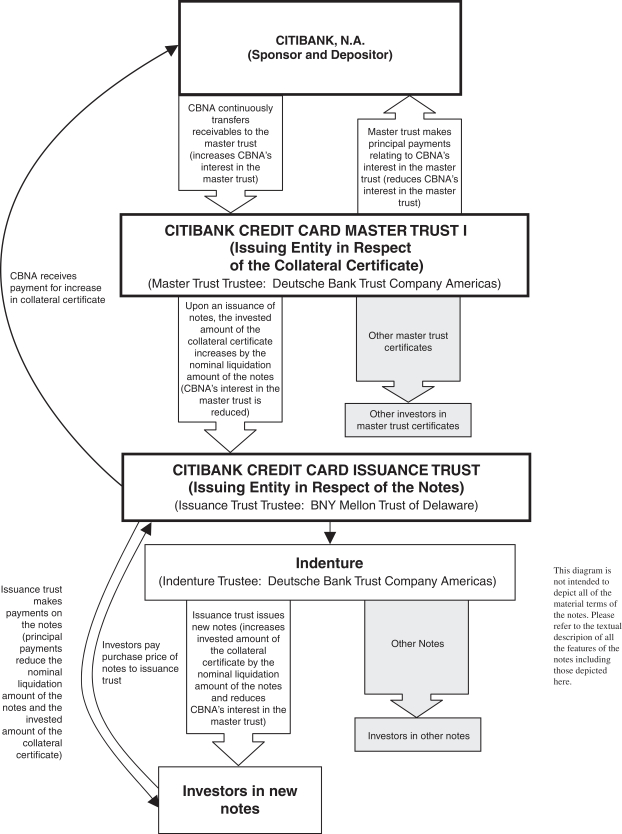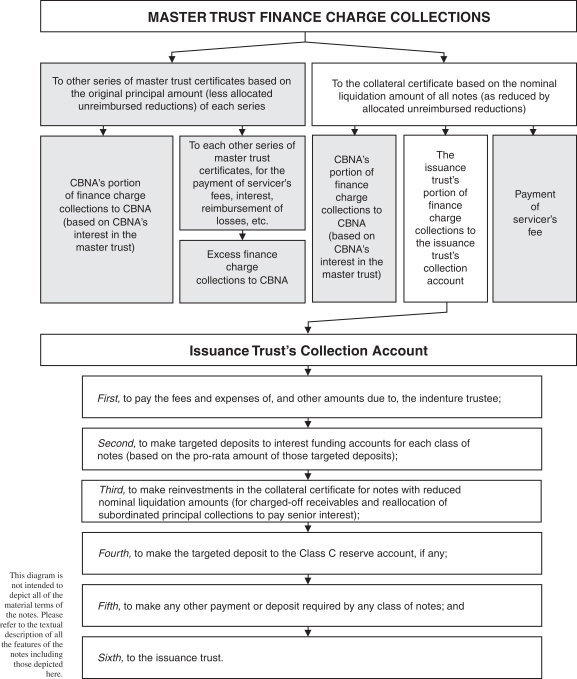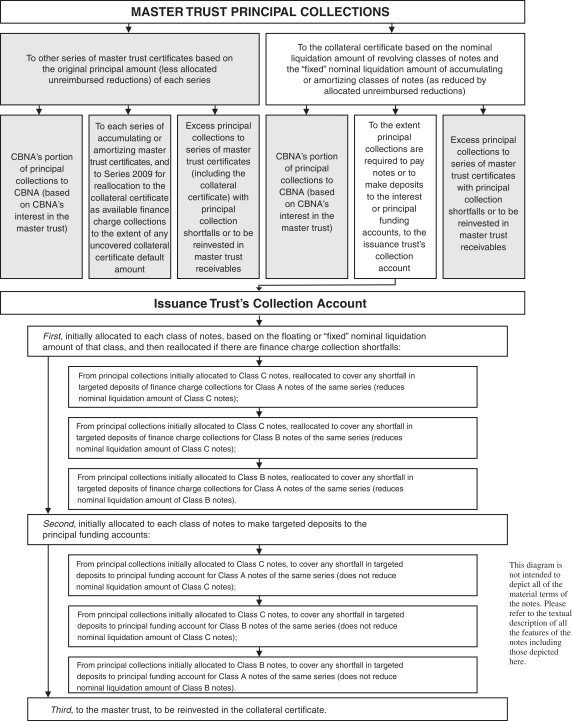limitations and conditions, including disclosure to consumers at the point of sale; and broad releases in favor of the defendants. Subsequently, all defendants and certain of the plaintiffs who had entered into the MOU executed a settlement agreement consistent with the terms of the MOU.
Visa and MasterCard have also entered into a settlement agreement with merchants that filed individual, non-class actions. While Citigroup is not a party to the individual merchant non-Class settlement agreement, it is contributing to that settlement, and the agreement provides for a release of claims against Citigroup.
On November 27, 2012, the court entered an order granting preliminary approval of the proposed class settlements and provisionally certified two classes for settlement purposes only. The court held a hearing on September 12, 2013 to consider whether the class settlements should be finally approved. On December 13, 2013, the court entered an order granting final approval to the class settlement, and on January 14, 2014, the court entered a final judgment. On July 28, 2015, various objectors to the class settlement filed motions in the U.S. District Court to vacate the court’s prior approval of the class settlement, alleging improprieties by two of the lawyers involved in the Interchange MDL. Also, a number of objectors have filed an appeal of the final approval order with the Second Circuit Court of Appeals, which heard oral argument regarding the appeals on September 28, 2015. On June 30, 2016, the Second Circuit Court of Appeals issued an order, vacating certification of the two settlement classes, overturning the class settlement and remanding the matter to the District Court for further proceedings. On November 23, 2016, counsel for the class plaintiffs that entered the now-vacated settlement filed a petition for certiorari review by the U.S. Supreme Court relating to the Second Circuit’s decision. On March 27, 2017, the U.S. Supreme Court entered an order denying class plaintiffs’ petition for writ of certiorari. Additional information concerning these consolidated actions is publicly available in court filings under the docket number MDL 05-1720 (E.D.N.Y.) (Brodie, J.) and 12-4671 (2d Cir.).
Numerous merchants, including large national merchants, have requested exclusion (opted out) from the class settlements, and some of those opting out have filed complaints against Visa, MasterCard, and in some instances one or more issuing banks. On July 18, 2014, the court denied defendants’ motions to dismiss complaints filed by opt-out merchants. One of the opt-out suits, 7-ELEVEN, INC., ET AL. v. VISA INC., ET AL., names Citigroup as a defendant. Additional information concerning these actions is publicly available in court filings under the docket number MDL 05-1720 (E.D.N.Y.) (Brodie, J.).
On November 30, 2016, separate counsel were appointed in the district court for the putative damages and injunctive relief classes. Counsel for those putative classes, as well as counsel for plaintiffs in the individual actions, have stated that they intend to move to amend their prior complaints.
Deutsche Bank Trust Company Americas (DBTCA), the indenture trustee and the master trust trustee, have been sued by investors in civil litigation concerning their role as trustees of certain residential mortgage backed securities (RMBS) trusts. On June 18, 2014, a group of
118


